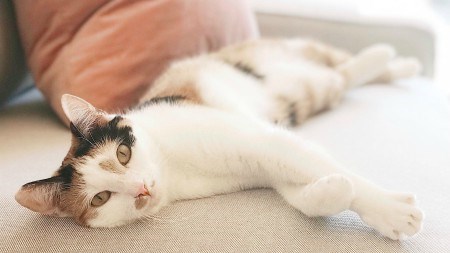Not too long ago my husband and I decided to adopt a Siamese kitten. A cat owner all my life, I thought I was quite prepared for any cat related eventualities. I was wrong.
Within a week said Siamese had managed to scramble through a hitherto unknown gap at the bottom of a kitchen cupboard and was trapped inside for hours. The top of the kitchen cupboards and fridge became the kitten’s personal highway and he nearly disappeared up our chimney – twice. Our curtains were shredded and we recently refurbished the underside of our bed which had been scratched beyond recognition.
The upshot is that if you are going to have a pet, make sure you thoroughly prepare your home for it. Doing so will prevent stressful situations and protect your beloved pet. The following are just a few ways in which you can pet - proof your home:
· Think about the world from pet eye-level: If you think children are bad when it comes to putting things in their mouths, think again. Kittens and puppies explore their environment by tasting and nothing is out of bounds. Before your new pet arrives, get down on the floor and check every nook and cranny for hazards. Poisonous house plants, marbles, string, Lego, jewellery and other small toys are but a few of the things which could end up choking your curious pet.
· Encourage acceptable chewing: Puppies are arguably the worst culprits when it comes to chewing and many an expensive shoe and couch has been tossed after a puppy takes a liking to it. If you catch your puppy (or dog for that matter) chewing on something it shouldn’t be, clap your hands to interrupt them and direct them to a suitable object such as a chew toy or bone.
· Exercise: Most animals benefit from exercise of some sort. Start walking or running your dogs from an early age and if possible, encourage your cats to go outside and explore the garden. Tired pets are far less likely to be destructive.
· Provide scratching stations: Cats by their very nature need to scratch. If they don’t have something suitable to scratch, they will find something - such as the underside of a bed – to fulfil their scratching needs. Station a scratching post near where your cats sleep as cats tend to enjoy scratching and stretching when they wake up.
· Don’t ignore any exposed electrical cords. Make sure they are sealed or tucked well out of reach of prying paws
· If you live above ground level, make sure your windows are appropriately screened. It’s not unusual for animals to die or suffer serious injuries following a fall from an elevated window.
· Keep all cleaning aids, poisons, medications and insecticides out of reach in a locked cupboard. It’s also a good idea to remove all rat and insect traps too.
· Invest in a good bin which cannot be easily opened by pets tempted by the smell of food. Bins can harbour sharp objects and other items toxic to animals.
· Re-think those attractive curtain cords and tassels. They can appear equally attractive to an inquisitive kitten or bored puppy and end up strangling them.
· Lastly, if you want to prevent damage to your furniture, trim but never de-claw a pet’s nails and provide more scratching stations. De-clawing is cruel and causes more harm than good.




